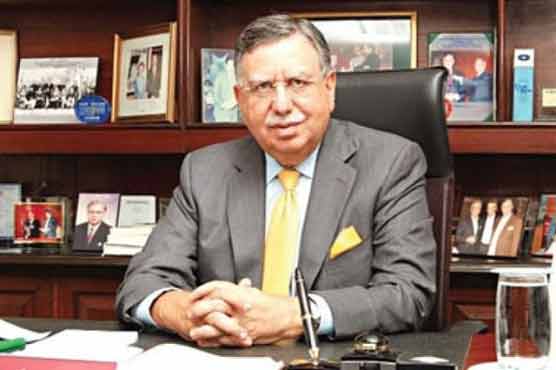By Our Monitoring Desk
ISLAMABAD– Federal Minister for Finance and Revenue Shaukat Tarin Tuesday said the government would make all-out efforts to take the Gross Domestic Product (GDP) growth rate up to 7 percent by 2023.
For the upcoming fiscal year, the GDP growth rate target was to 5 to 5.5 percent and by over 6 percent the next year, he added.
In an Interview, Tarin said the country was in dire need of inclusive and sustainable growth. Some growth cycles were witnessed during the past 74 years, but they could not sustain, hence no trickle-down effect was passed on to the poor. For trickle-down effect, the growth momentum should sustain for 20 to 30 years, he maintained.
The minister said the government had focus on growth because when the wheel of economy span fast, the people’s income increased. He said for inclusive growth, there was need to enhance revenues, and promote productive sectors, including agriculture. Unfortunately, the country at present had become a net importer of food products and that was why the international food prices were having direct impact in Pakistan, he added.
He said exports were required to be enhanced for sustainable growth. The government had provided incentives to different sectors of economy to promote exports. He cited that the textile sector exports reached $16 billion this year and expected to grow upto $20 billion next year.
The minister said the government had made a paradigm shift and opened up new export sectors, including IT, motor-parts, pharmaceutical,and two and three wheelers. He expressed the hope that the information technology (IT) sector had great potential and would enhance its exports up to $4 billion next year. The IT sector would be incentivized, besides giving the status of Industry.
The minister said there was need to enhance tax to GDP ratio. It was currently at 10 percent and would go up to 11.5 percent next year as the government was using technology and innovations for widening the tax base. He said the current government had utilizing technology for sales tax. He said the FBR had obtained profile data of 7.2 million people, who would be approached to pay the tax. He mentioned that there were some sectors like agriculture and retail where tax base could be enhanced.
Currently, he said, the retailers were showing just 500 billion sales, which was around to Rs 8 to Rs10 trillion. There was need to use technology and that was why the government had been installing Points of Sale (PoS), besides giving prizes to the customers to demand proper receipts from the shopkeepers, he added.
To a question, he said the government had announced a self-audit scheme, and if there was any doubt on assessment then it would be audited by a third party and not by the Federal Board of Revenue (FBR). The Board would work in coordination with NADRA to identify potential taxpayers as the latter had the data of around 15 to 17 million people, he added.
To a question about the International Monetary Fund (IMF), the minister said this time the the programme was front-loaded and tough. Both the IMF and Pakistan wanted sustainability of reforms in the power sector and revenues. The measures taken by the government would make the power sector sustainable and help enhance revenues, which also was the goal of IMF, he added.
To another question, Tarin said the State Bank of Pakistan should have autonomy, but it should be balanced. The SBP also should have coordination with the government, he added. The minister said the debt to GDP ratio, which had declined around 3 percent, would come further down next year. He, however, stressed on enhancing tax and non-tax revenues to ensure growth.

